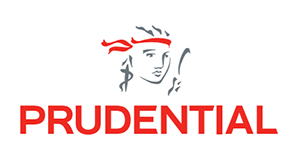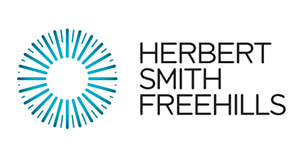GOVERNANCE & RULE OF LAW
GOVERNANCE
Government
The GoSL is led by a President elected directly by the people and who is also the Head of State and Commander-in-Chief of the armed forces.
Within the GoSL, the Ministry of Trade and Industry has oversight of policies relating to domestic and international trade. SLIEPA is responsible for policies to improve the investment climate, promote local and export trade and encourage the development of small-to-medium-sized businesses. SLIEPA has thus far focused on FDI in key economic sectors including agriculture, marine resources, mining, energy and tourism. The GoSL has announced its intention to launch a National Investment Board.
A system of local government was established by the Local Government Act 2004. It comprises 19 councils: five city councils, one municipal council and 13 district councils. The Decentralisation Secretariat was established under the World Bank’s Institutional Reform and Capacity Building Project to promote decentralisation.
Legislature
The Sierra Leone Parliament (comprising the President, the Speaker and members of Parliament) is vested with legislative power by s105 of the Constitution, and acts as the law-making body in Sierra Leone. The President has supreme executive authority under s40 of the Constitution, which is exercisable by him or by members of his Cabinet, Ministers, Deputy Ministers or public officers. The President is able to issue executive orders which, under s170(7) of the Constitution, are required to be laid before Parliament, published in the Gazette on or before the day they are laid before Parliament, and come into force at the end of a twenty-one day period of being laid before Parliament, unless annulled by Parliament by at least two-thirds of the Members.
RULE OF LAW
Constitution
Sierra Leone’s Constitution contains certain investment protections, such as the right not to be deprived of one’s property, described further below. There are numerous provisions that uphold the separation of powers between the legislative, executive and judicial branches of government.
The Supreme Court has power to rule on all matters relating to the interpretation of the Constitution and in relation to any question concerning whether Parliament, or any other authority, has exceeded its powers. Parliamentary Committees also have a duty to investigate the activities and administration of the executive Ministries.
There have been disputes over the interpretation of the Constitution. It is generally accepted that the 1991 Constitution requires amendment in order to better reflect the values, and aid the ongoing development, of Sierra Leone as a modern and stable democracy. From 2013 to 2015, supported by the UNDP, the Constitutional Review Committee undertook a review of the 1991 Constitution which involved extensive stakeholder consultation, and civic dialogue and education. The recommendations of the Constitutional Review Committee have not yet been implemented. The GoSL has committed to examining the report of the Constitutional Review Committee and revisiting the White Paper issued by the previous government with a view to giving effect to the recommendations where practicable.
Transparency and accountability
Sierra Leone is a party to the UN Convention Against Corruption. Domestically, the National Anti- Corruption Commission (ACC), established under the Anti-Corruption Act of 2000, as amended in 2008, is the body responsible for investigating allegations of, and educating the public on, corruption. According to the GoSL, it has a 100% conviction rate and, in 2018, has recovered over US$1.5 million of funds lost through corrupt practices. In March 2008, Sierra Leone ratified the African Union Convention on Preventing and Combating Corruption, five years after it became a signatory. As at the time of publication, the Sierra Leone Parliament was amending the ACC Act, including to strengthen the ACC’s prosecutorial powers and to ensure mandatory recovery of alleged misappropriated monies upon conviction. In addition to the reforms, a new anti corruption court has been established. The court is a new division of the High Court, with five judges who will sit purely on corruption cases. Since coming into power, President Maada Bio has indicated the GoSL’s intention to use international anti-corruption agreements to combat the misuse of government funds.
Sierra Leone registers on the 2019 US Millennium Challenge Corporations’ Control of Corruption Scorecard at 71% for Control of Corruption (up from 49% in 2017). In the MCC’s AfroBarometer Corruption Perception Index, Sierra Leone dropped from over 70% in 2015-2017 to an all-time low of 43% in 2018. Similarly, according to AfroBarometer Corruption Perception survey of 2018, citizens’ belief in the GoSL’s effort in the fight against corruption jumped from 40% to over 66% in 2018.
Sierra Leone scored an average of 3.0 out of 6.0 for transparency, accountability, and corruption in the public sector ratings (where 1.0 indicates low transparency levels and 6.0 high transparency levels) on the World Bank’s Country Policy and Institutional (CPI) Assessment from 2014 to 2017. In 2017 (the latest ranking at time of publication), Sierra Leone ranked 130 out of 180 in CPI, with a score of 30/100.
While there is still work to be done, it is encouraging that Sierra Leone has maintained its improved CPI ranking over recent years. The 2017 Index put Sierra Leone ahead of 20 other sub-Saharan African countries including common investment destinations such as Nigeria and Kenya. On a global level, Sierra Leone’s ranking surpasses many other emerging investment markets.
Sierra Leone has made significant efforts to regulate the procurement process to ensure transparency and accountability in public procurement. The NPPA, which was established under the Public Procurement Act of 2004 (repealed and replaced with the Public Procurement Act of 2016), is mandated with the task of overseeing and monitoring procurement across MDAs and local councils, building capacity and assisting with policy formulation. The NPPA has made significant reforms to the public procurement system, creating regulations to support the implementation of the Public Procurement Act, developing user-friendly manuals for compliance with the regulations, and producing standard bidding documents and requests for proposals. The NPPA does not have enforcement powers however it can refer any cases of non-compliance with procurement laws to the ACC.
Sierra Leone has made significant efforts to regulate the procurement process to ensure transparency and accountability in public procurement. The NPPA, which was established under the Public Procurement Act of 2004 (repealed and replaced with the Public Procurement Act of 2016), is mandated with the task of overseeing and monitoring procurement across MDAs and local councils, building capacity and assisting with policy formulation. The NPPA has made significant reforms to the public procurement system, creating regulations to support the implementation of the Public Procurement Act, developing user-friendly manuals for compliance with the regulations, and producing standard bidding documents and requests for proposals. The NPPA does not have enforcement powers however it can refer any cases of non-compliance with procurement laws to the ACC. The GoSL has outlined in the MTNDP plans to make the procurement process easier and more transparent, including by migrating to an e-procurement system.
Sierra Leone’s Audit Service, established in 1998, works to ensure greater accountability, efficiency and effectiveness in the distribution and use of public funds. In 2014, the Audit Service had its mandate to audit and report on all public accounts of Sierra Leone extended. Its remit covers all public bodies including central and local government and the judiciary. The Service has the power to disallow unlawful expenditure and recover monies due through litigation. The GoSL has indicated in the MTNDP its intentions to strengthen the Audit Service, including to ensure greater implementation of the Audit Service’s recommendations, to support the Audit Service in fulfilling a significant role in the socio-economic development of the country.
The Right to Access Information Act 2013 was implemented in 2013, providing access to information held by public bodies. The Right to Access Information Commission, which is a partner of the Global Partnership for Sustainable Development Data, was established in 2014. Following this, the Open Data Portal was launched in May 2015, facilitating access to information on economic recovery and public services as well as open contracting data, budget data and data on development assistance. In March 2017, Open Data 2.0 was launched, a key objective of which is to promote more sustainable and long-term transparency from within the GoSL and to encourage the use of the portal by Chief Technology Officers within many ministries who will be responsible for managing and uploading data.



